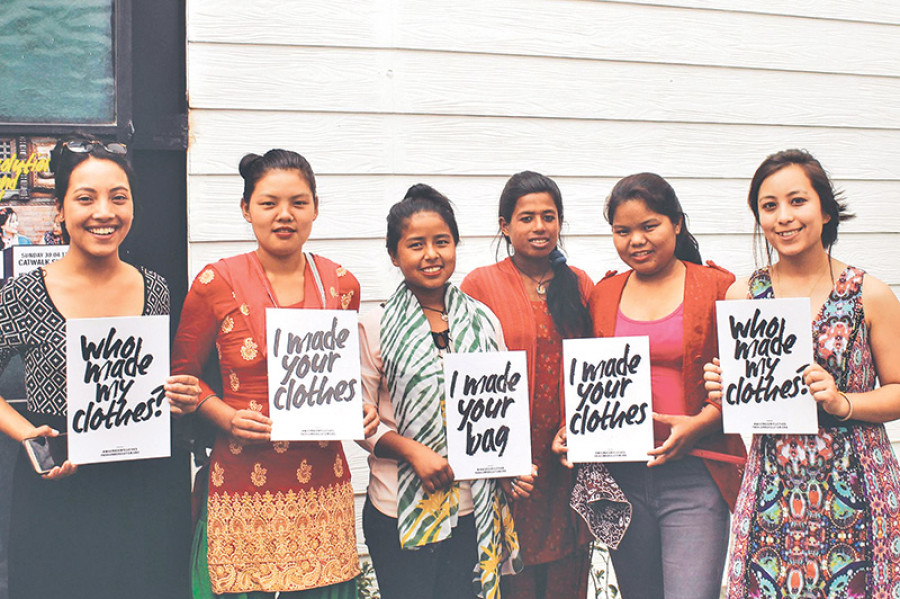Entertainment
#whomademyclothes
Tuesday marked the fifth anniversary of what is regarded as the fourth largest industrial disaster in history—the collapse of the Rana Plaza building in Bangladesh. The disaster claimed the lives of 1,138 people and injured 2,500 more.
Tuesday marked the fifth anniversary of what is regarded as the fourth largest industrial disaster in history—the collapse of the Rana Plaza building in Bangladesh. The disaster claimed the lives of 1,138 people and injured 2,500 more.
The five-storey building used to house a bank, several apartments, shops, and five garment factories—all of which manufactured clothing for large global brands such as Benetton, El Corte Inglés, Joe Fresh, Mango and Walmart.
Sources say that the shops and the bank on the lower floors were immediately closed after cracks were discovered in the building. “…However, the garment workers were ordered to return the following day, and the building collapsed during the morning rush-hour.” The victims were mostly young women.
The tragedy brought to light the fashion industry’s exploitation of workers who were forced to work in dangerous conditions for meagre pay. It also pushed some people to come together and use fashion as a tool to change the way consumers look at the clothes they wear.
A global initiative called Fashion Revolution was conceived in 2014 and has since been organising annual campaigns across the world to raise awareness about ethical fashion and sustainability. The campaign demanding accountability from the fashion industry takes place during the week of 24th April every year in over a 100 countries.
Last year, the initiative also launched the second edition of the Fashion Transparency Index—a review of 100 of the biggest global fashion brands and retailers ranked according to how much they disclose about their social and environmental policies, practices and impact.

The global movement entered Kathmandu in 2014 as Fashion Revolution Nepal, the fifth edition of which is taking place on Saturday, at Suburb Café in Lalitpur, 12-5pm. The event aims to raise awareness about ethical fashion in Nepal. The fair will see participation of over 12 Nepali brands including Sabah Nepal, Hattihatti, Kallisto, Ekadeshma, Aamo Nepal, and Maya Handicrafts, among others.
“The aim is to bring together brands that have a strong commitment towards transparency, fair employment, fair trade and sustainability,” says Simran Silpakar, an organiser.
During the Fashion Revolution week, people are encouraged to take pictures with the labels visible on their apparel as well as question brands on how the clothes were made and by whom. Brands, on the other hand, are encouraged to respond in a way that demonstrates transparency in their supply chain.
The event is supported by Timro Concept Store and The Local Project—two businesses that curate and promote ethical fashion.
“We can’t stop wearing clothes but we can definitely stand up for fair trade in the clothing industry and encourage the production of environment-friendly fabrics, with the utilisation of natural dyes and promote sustainable as well as ethical fashion,” says Silpakar.




 9.83°C Kathmandu
9.83°C Kathmandu









